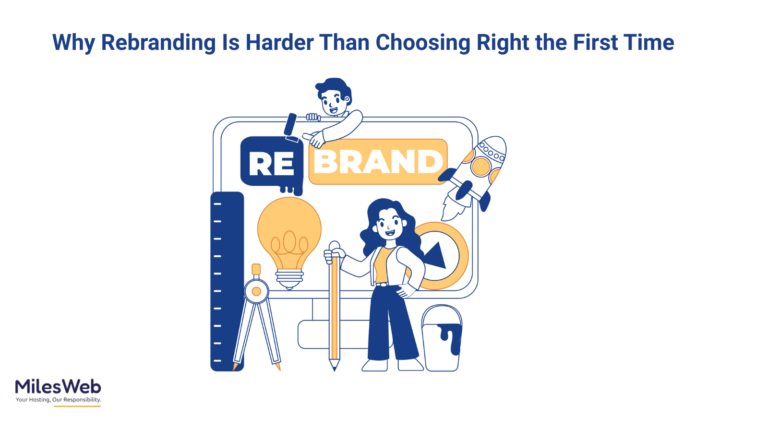Keyword optimization is a primary factor of a successful SEO strategy, and it largely determines the rank of your website on search engines. Essentially, it assists Google in comprehending your content, making it more visible, aligning with the user’s requirements, and, thereby, increasing your possibility of outranking your competitors. However, the advent of modern algorithms such as RankBrain, BERT, and the Helpful Content Update implies that keyword optimization is not about keyword stuffing anymore. Rather, it emphasizes relevance, user intent, clarity, and content value.
What Is Keyword Optimization
Keyword optimization is a strategic and well thought-out method that involves the identification, choice, use, and enhancement of keywords in your material with the aim of making search engines recognize your subject and providing your page with the deserved rank for the appropriate search queries.
Moreover, it guarantees that your content is what the users look for and assists Google in properly indexing your page.
Example
-
In case people look for “how to improve keyword ranking,” you should naturally have words like:
-
keyword optimization
-
SEO ranking
-
keyword placement
-
search engine
-
search intent
-
Keyword optimization comprises the following: keyword research, competitor analysis, content structuring, on-page SEO, semantic keywords, and regular updating.
Also Read:- ChatGPT vs Gemini vs Copilot: Understanding the Key Differences Between AI Giants.
Why Keyword Optimization Is Critical for Search Visibility
Point by point, here are the main reasons why keyword optimization is the direct cause of ranking and visibility.
1. Improves Content Relevance
In order to comprehend what your content is about, Google requires definite hints. The correct use of keywords is one of the main tools that help categorize the content.
Example
-
A post writing about email marketing tips must contain the terms such as:
-
email campaign examples
-
how to improve open rates
-
related email marketing concepts
-
2. Enhances User Intent Matching
Google determining that your content is a relevant answer to the searcher’s questions is facilitated by the fact that you satisfy the intent best.
Examples of intent
-
best SEO tools → comparison intent
-
how to optimize keywords → learning intent
-
SEO services near me → commercial or local intent
Example
-
The best SEO tools search should bring results that include:
-
tool lists
-
pricing
-
features
-
comparisons
-
3. Boosts Organic Click Through Rate
Users can instantly identify content that satisfies their query through the help of keyword-laden titles and descriptions, which is why it is that they perform the click-through.
Example
-
Poor: Improve Your Website Performance
-
Good: Keyword Optimization Tips to Improve Your Search Engine Visibility
4. Strengthens Topic Authority and E-E-A-T
Integrating keyword-optimized content into your area of interest conveys the signal of authority and trust to Google.
Example
If your website covers topics such as:
-
How keyword optimization works
-
Best keyword research tools
-
Keyword placement strategies
Google sees your website as a leading authority in the field of SEO topics.
5. Helps Capture Long Tail Search Traffic
By definition, long tail keywords appeal to those internet users who are more inclined to have a specific request in mind when searching and that the competition for these keywords is relatively low.
Examples
-
how to optimize keywords for Google ranking
-
keyword optimization tips for beginners
-
best keyword placement strategy for blogs
6. Improves Internal Linking and Website Structure
With the use of internal links, search engines figure out the relationship between your materials, and linking facilitates their work by making it more efficient.
Example
-
Connecting a page on keyword optimization to a post on Advanced Keyword Research Techniques helps search engines see:
-
topic relevance
-
content depth
-
expertise in the subject
-
Types of Keywords Used by Top Competitors
Competitors employ various keyword types simultaneously to get a higher ranking and more extensive coverage.
1. Primary Keywords
The main keyword that refers to the central theme of your content.
Example
-
keyword optimization
2. Secondary Keywords
Secondary keywords that clarify the main theme further.
Examples
-
keyword placement
-
SEO keyword strategy
-
keyword ranking factors
3. Long Tail Keywords
Specific keywords that have more than one word and are aimed at users with a strong intent.
Examples
-
how to optimize keywords for better ranking
-
keyword optimization techniques for blogs
4. LSI and Semantic Keywords
Words that are related in context and help Google to understand the topic and the depth of the content.
Examples
-
search intent
-
organic ranking
-
SEO on page factors
5. Question-Based Keywords
They are great for ranking in PAA and featured snippets.
Examples
-
What is keyword optimization
-
Where should I place keywords in content
6. Competitor Keywords
Keywords that competitors rank for which give you a nudge towards potential opportunities.
Example
-
If a competitor ranks for best SEO keyword strategies, you can get a higher position by making a more detailed version.
7. Local Keywords
Keywords that guide the ranking of location-based searches.
Examples
-
SEO keyword optimization service in Mumbai
-
digital marketing agency in Delhi
Tools for Keyword Optimization
These are the tools that help to find the right keywords, examine rivals, optimize on-page SEO, and enhance content performance.
1. Google Keyword Planner
It is a tool to find new keywords with information about the number of searches and the level of competition.
2. Ahrefs
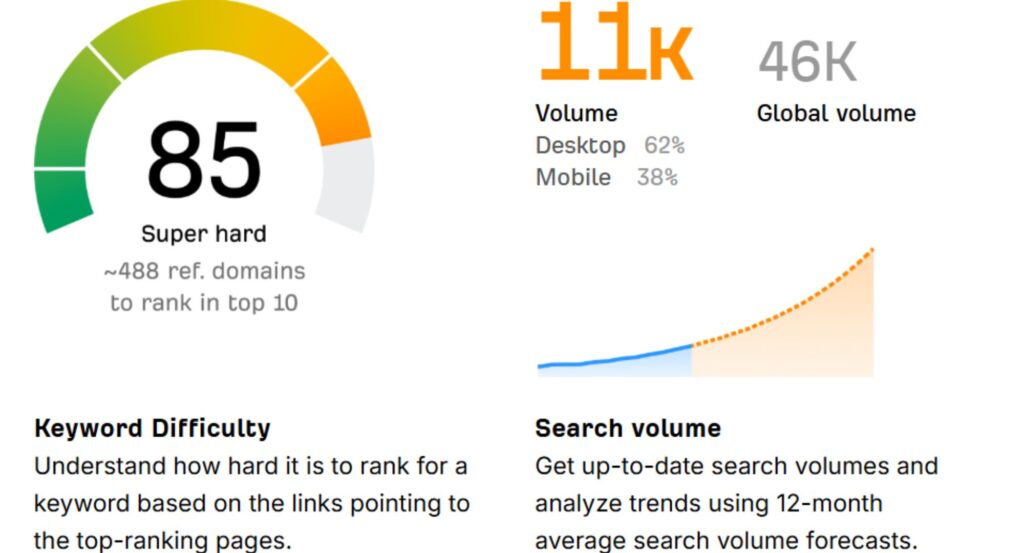
Source:- https://ahrefs.com/
Detector for competitor keywords, keyword difficulty, and backlink data, as well as an analyzer of search engine results positions.
3. SEMrush
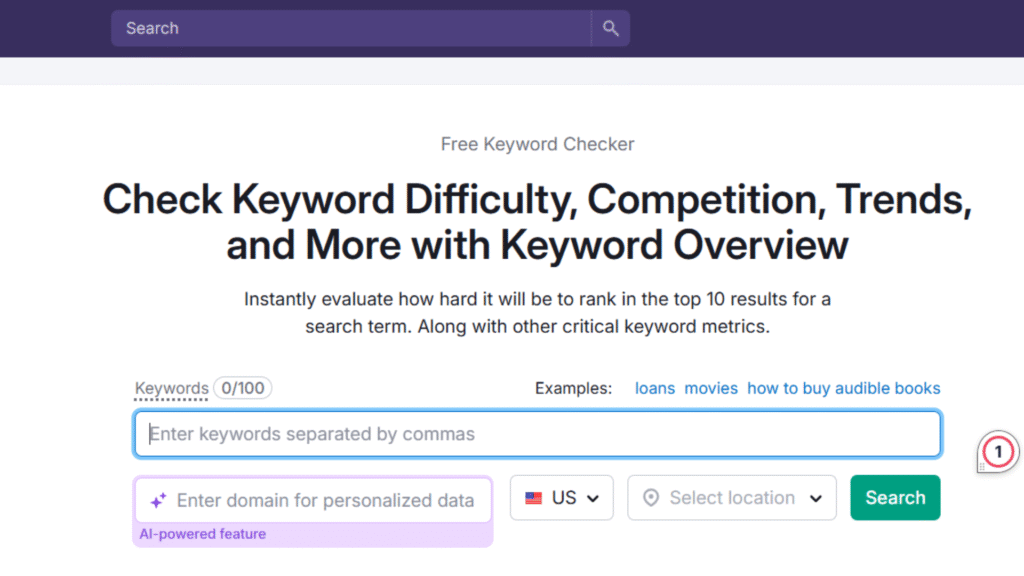
Source:- https://www.semrush.com/
This tool enables the tracking of keywords, audit of SEO, and analysis of keyword gaps.
4. Moz Keyword Explorer
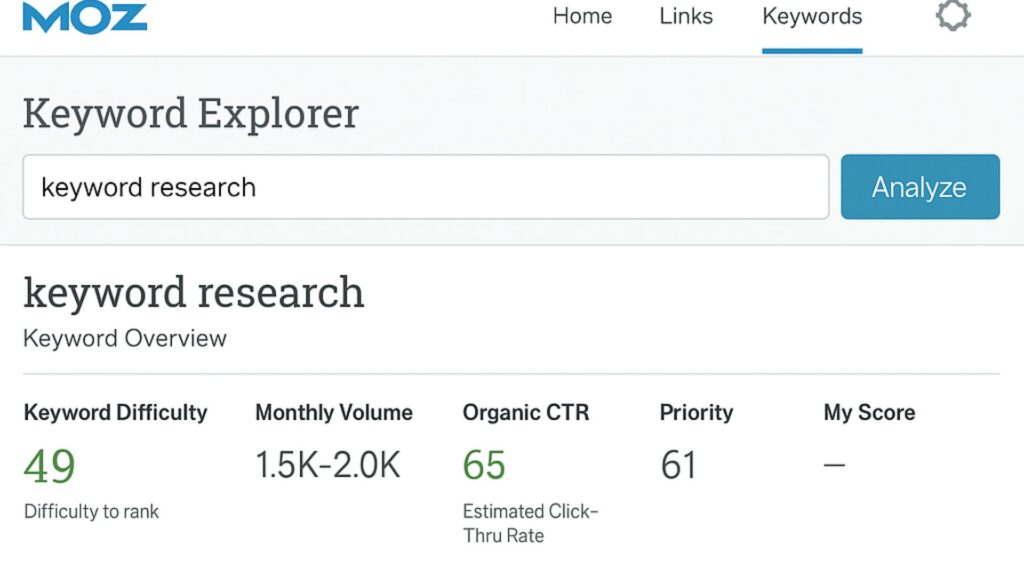
Source:- https://moz.com/explorer
This tool offers relevant keywords, identifies SERP features, and estimates organic CTR.
5. Ubersuggest
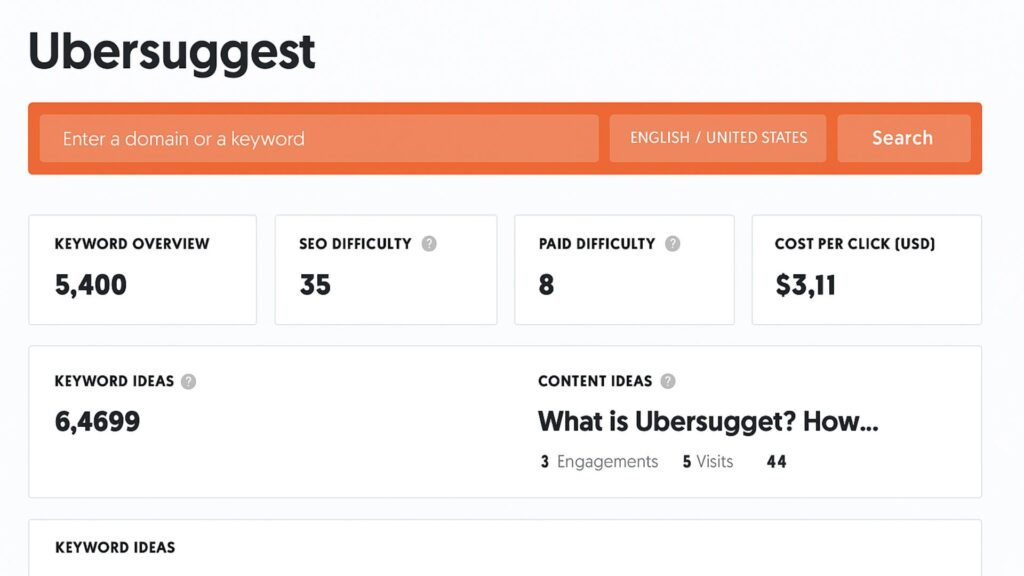
Source:- https://neilpatel.com/ubersuggest/
It is an affordable SEO tool that generates keyword ideas, provides content suggestions, and delivers SEO metrics.
6. AnswerThePublic
The service generates question-based keywords directly from user search patterns.
7. Google Trends
It displays the popularity of a keyword over time and allows several keywords to be compared.
8. Surfer SEO
Based on the content of the top pages, it gives you suggestions to improve your content in real-time.
Competitor Comparison Table
| Feature | Your Content | Competitor Content | Advantage |
|---|---|---|---|
| Keyword depth | Broad and semantic | Focused but limited | Higher relevance |
| Intent matching | Covers all intent types | Often partial | Better user satisfaction |
| Examples | Detailed and practical | Few or none | Higher engagement |
| Structure | Proper SEO structure | Often unstructured | Better readability |
| E-E-A-T signals | Clear and strong | Not always strong | Higher authority |
FAQs
-
What is keyword optimization in SEO
It is the process of finding and using the most suitable keywords to get better search visibility and ranking. -
Why is keyword optimization important
The main reason is that it makes your content understandable for search engines, which then can easily match it with the user queries and rank your page accordingly. -
How many keywords should I use
One main keyword is enough, while the rest of the keywords can be secondary or semantic ones depending on the content length. -
Where should I place my keywords
These go in the title, URL, meta description, first paragraph, subheadings, body content, and image alt tags. -
What tools help with keyword optimization
Some of the most used tools are Ahrefs, SEMrush, Google Keyword Planner, Moz, Ubersuggest, Surfer SEO, and AnswerThePublic.
Conclusion
Keyword optimization constitutes the core of SEO, which directly impacts the visibility of the website in search engines. By performing thorough keyword research, considering user intent, using semantic and long-tail keywords, improving internal linking, and creating valuable content, your chances of ranking higher and thereby getting more organic traffic become higher. Effective keyword optimization leads to increased relevance, authority, and user satisfaction, which is why it ultimately results in stronger SEO performance in the long run. If done regularly, it becomes a very powerful tool for establishing a strong online presence.





